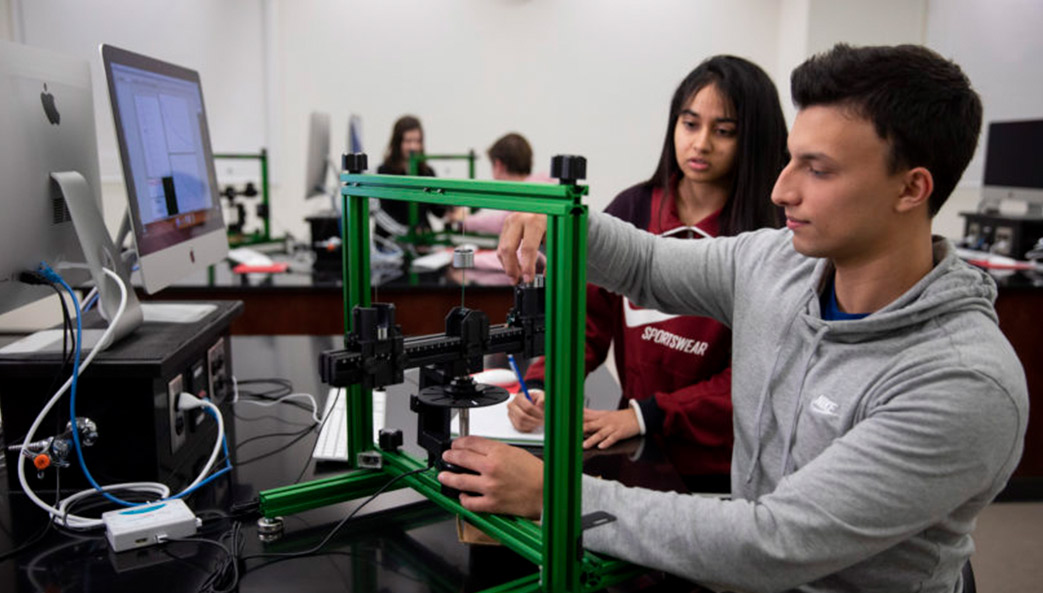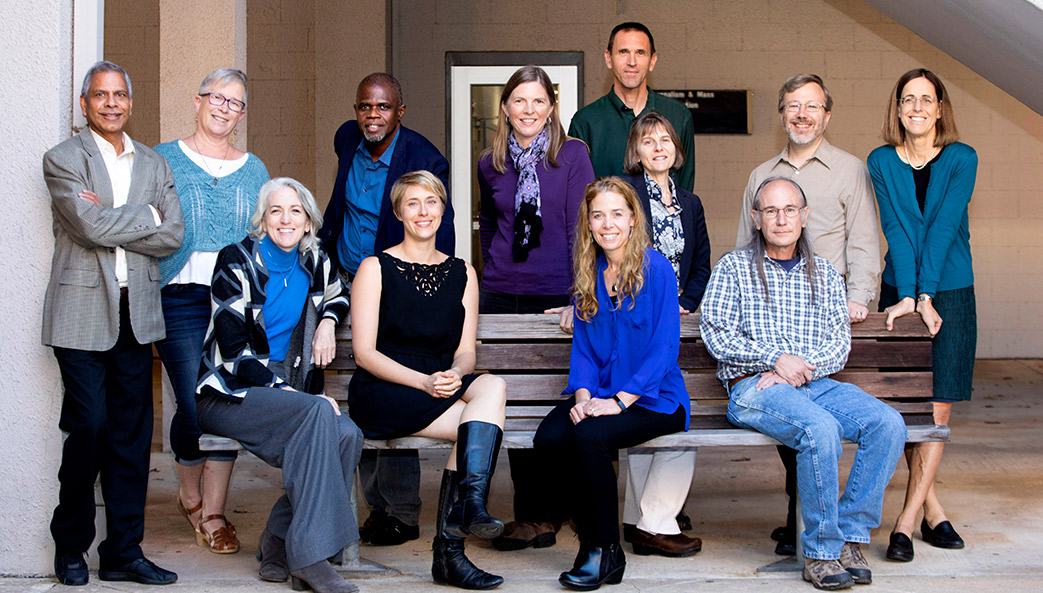The number of University of Georgia undergraduate students in STEM disciplines has risen approximately 20 percent over the past five years, with 11,832 (40 percent of the student body) declaring a major in science, technology, engineering or mathematics in the fall of 2018 alone.
Combine this surge with the recent launch of UGA’s Innovation District and construction beginning on the I-STEM Research Building, and you can feel the STEM momentum on campus.
The increase in STEM-related majors matches national trends. According to the Education Commission of the States, STEM jobs in the U.S. are expected to grow 13 percent from 2017 to 2027. The Bureau of Labor and Statistics estimates that 93 percent of all STEM occupations provide wages (average salary is $87,570) above the national average and more than twice the national average of non-STEM jobs. Such trends indicate that the world is looking to STEM professionals to address its grand challenges.
“We have more complex problems in our world,” says Timothy Burg, director of UGA’s Office for STEM Education, “and we’re expecting effective, ethical, sustainable, equitable solutions.”
At UGA, there has been a focus on invigorating STEM education to better prepare students to solve these big, complex problems, said UGA’s Vice President for Instruction Rahul Shrivastav.
“STEM education at UGA is more than just learning facts,” said Shrivastav. “It’s a holistic approach, where students develop a broad set of skills that enable cross-disciplinary collaboration along with expertise in a given area.”
To create this holistic approach, the university has worked to elevate the curriculum, the learning opportunities and the facilities on campus. For example, UGA’s Active Learning Initiative, which promotes evidence-based teaching practices and encourages greater interaction between students and instructors, has raised the bar for in-class instruction. The active learning push has worked in tandem with the university’s Small Class Initiative and the construction of the Science Learning Center, both of which have enhanced the learning environment, Shrivastav said.
When it comes to STEM education, UGA instructors and researchers aren’t just employing best practices, they are establishing how to make those practices even better. Faculty in introductory STEM classes are exploring the use of peer mentors to enhance classroom activities in a three-year grant from the University System of Georgia. Funded by a $3 million National Science Foundation grant, teams of UGA faculty are collaborating on an implementation and research project that seeks to transform STEM education on campus. Through the project, known as the Department and Leadership Teams for Action, or DeLTA, faculty and administrators are working at the course, departmental and university levels to create, implement and assess teaching materials and practices that support evidence-based teaching in STEM.
UGA also has been a national leader in experiential learning, bridging in-class theory with practical experience. STEM majors have the opportunity to work in faculty members’ labs, conduct their own research with faculty mentors and intern in the private sector.
Andrew Potter, UGA’s new director of experiential learning, said these opportunities aren’t just about practicing what students have learned in the classrooms. It’s about developing the skills that will enable them to compete and collaborate in a rapidly evolving world.
“Technology is changing faster than the curriculum,” Potter said. “The ability to develop skills through these kinds of immersive, real-world experiences impacts learners cognitively and affectively. Although the world is becoming more technical, these emotive skills are becoming increasingly important.”
Ultimately, the university’s enhancements in STEM education parallel its overall approach to preparing students for an evolving world.
For example, the university’s Curriculum Committee is now developing proposals to incorporate data literacy as well as writing and communication competencies into the undergraduate curriculum for all students. These proposals, which are among those recommended in the 2017 President’s Task Force on Student Learning and Success, are designed to prepare graduates who are ready for future success as citizens and professionals.
“In today’s world, you need to be an effective communicator, have the ability to work with a team and be data literate,” Shrivastav said. “It’s not about moving through a predetermined curriculum and being done. It’s about creating a well-rounded education that helps ready graduates for the next step of their lives.”






